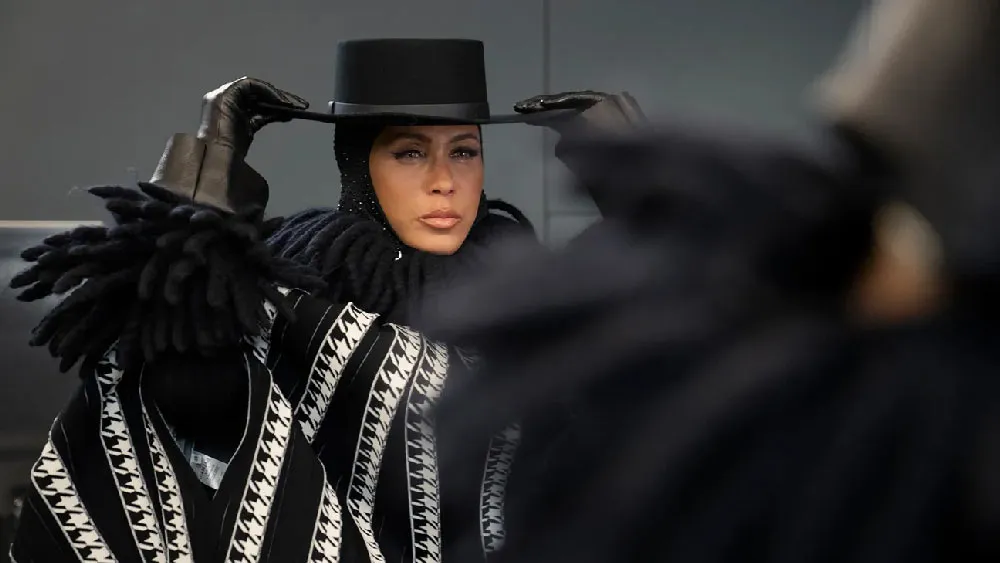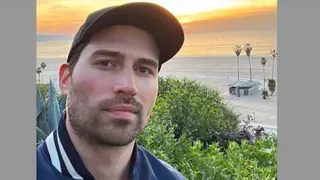August 22, 2024
'Dream Big. Build Higher' -- Director Cady Huffman on 'Empire: The Musical'
Steve Duffy READ TIME: 9 MIN.
EDGE: Tell us about translating this story to the stage.
Cady Huffman: Everybody knows it – the Empire State Building -- got built. That's not the big reveal. But the story of how it got built is very interesting. It began at the start of the Great Depression during what was called the Race to the Sky. The Chrysler Building had recently been built; and it was thought that the Stock Market crash would end plans for any other skyscrapers. But the people involved with financing of the Empire State Building said, 'Let's do it.' And, despite the Depression, they planned on finishing it in 14 months. It was a crazy and unheard of plan. But what was important are the people who built it – these humble people who don't get any credit for doing some incredible work. Then, of course, there are the Mohawk Indians who became legendary for walking the high beams. What they did was extraordinary. There's this whole lore about the ironworkers and the people who walk on those beams up in the sky. They were people whose stories interested me, as did the building itself. It became an icon not only because of its stature as the world's tallest building, but because it was the first building where the public was allowed inside. When they built the Chrysler, that beautiful building, a year earlier, no one was allowed to go past the lobby. Whereas the Empire State Building built observation decks so everybody could go right up in it and look at the world. Even King Kong came over for a look. I think there's something beautiful and romantic about the building. I really wanted to tell the story of the real people who built it.
EDGE: Were you able to speak to any relatives of the original builders?
Cady Huffman: My writers, Caroline Sherman and Robert Hull, have spent a lot of time researching, particularly the Mohawk culture, because we wanted to be as accurate as possible and hire native American actors. It was important to respect their culture, and we have Mohawk consultants who are loving, truthful, and joyful and help us find our way in telling the story.
EDGE: Tell us about the music?
Cady Huffman: The music is great, and there is a diverse selection of songs. There are a lot of different types of songs. I always say we sing in musicals when it's no longer enough to speak. I think that's why people respond to musicals so much; when you don't know what to say, you should sing. I don't know why everybody's always not bursting into song. That would make perfect sense to me, but most people don't. So, you go to the theater to get a burst of emotions you may not otherwise get. The songs have different styles and feel for whatever character is singing, whether it is the laborers or the ironworkers. They each have their own their own sound.
EDGE: What is it like directing a play in New York City about a building in New York City?
Cady Huffman: I've always said it's the center of the world. I love New York City. I don't live in New York anymore, but I know it well, and it still feels like my town. When you get to know New York, New York gets to know you. There's just such a vibrancy and excitement about the city. I've traveled worldwide and can't think of another city with its allure. I'm thrilled to celebrate New York.
EDGE: What are the challenges of directing a play based on real events?
Cady Huffman: I really count on my writers for that because we have some historical characters. We have Al Smith, John J Raskopf, and Wally Wolosky, who is based on two women. I'm directing their show. When I saw "Hamilton," I thought I was getting a history lesson; but then I read Hamilton had eight children, not just Philip. So, I'm not getting a history lesson, and remembering that this is a suspension of disbelief and there's artistic license involved. A lot is going on, and my brain tends to be a little pedantic - one thing happens after the other; although I love directing abstractions, there are story telling challenges. You must decide how you want to tell the story. What's the real story? What's the emotional part of the story as opposed to the historical lesson parts of the story?
EDGE: I love the tagline, 'Dream Big. Build Higher.' What does that mean to you?
Cady Huffman: As I get older, it means something different now than it would have meant in my twenties or even my thirties. I'm just barely in my 50s with my 60s soon to come, but I've learned that it's never too late to dream. I reinvented myself several times because I had to do it. I love change. I know a lot of people want to stay in the same job. Believe me, I get very excited when I have a paycheck every two weeks, but it doesn't suit me to stay with one job. So, dream big and build higher. There's a spiritual aspect of that for me. What am I? What do I really want to put out in the world now? What sort of message do I want to put out there? It's not about making money and becoming famous like it was when I was younger; I thought that was so important. Now, it's what do I want to put out there? What messages do I want to put out there? Do I want to use my power for good? And I do.
EDGE: What do you want the audience to take away from the show?
Cady Huffman: I like to direct things that bring up questions. I hope they will want to know more about the building and the many cultures we represent in the story. Also, like the building, things work when you come together when you're on a team and have each other's backs. This relates to all things in life.
For more information on "Empire The Musical" and to purchase tickets for the show, visit the show's website. "Empire" continues at New World Stage in New York City through September 22nd.







